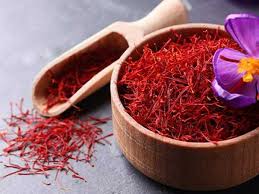Saffron During Pregnancy
Saffron During Pregnancy
Saffron is one of the factors that causes contraction of the uterus, and as you know, contraction of the uterus can lead to miscarriage. In addition, it should be noted that saffron increases the body temperature and high body temperature can cause the death of the fetus. Therefore, the risks of consuming saffron during pregnancy are very significant, and you must consult your doctor before using it. Some pregnant women experience nausea, headache and stress after consuming saffron, and we suggest that if you are part of this group, avoid consuming saffron during pregnancy. Vomiting is also one of the other side effects that you may experience after consuming saffron. Vomiting not only makes you feel uncomfortable, but it also makes it difficult for your fetus to get the vitamins and minerals it needs. Consuming 3 grams of saffron per person per month is very beneficial and using more than 5 grams per month can be harmful. Also, there are evidences and proofs about the effects of abortion when consuming large amounts of saffron, that’s why it is sometimes used to end unwanted pregnancies. In the first 3 months of pregnancy, when the body organs of the fetus are forming and it is considered a sensitive period, excessive use of saffron can cause harm to the fetus because it affects the hormones of the uterus and increases the possibility of miscarriage. But after the first 3 months of consumption, it can be useful under the supervision of a doctor. In general, it is better to avoid consuming saffron during pregnancy which may lead to miscarriage.
Benefits of Saffron for Pregenant Women
During the research conducted on pregnant women, it was observed that the consumption of saffron in the last months of pregnancy makes the uterus elastic and makes childbirth easier. Consumption of saffron after the first 3 months shows its effect near childbirth and with the onset of pain because it has an effect on the hormones that cause the contraction of the uterus and increases the secretion of this hormone. It loses its contractility and prevents difficult childbirth, for this reason, saffron syrup is considered useful to reduce the pain of childbirth. On the other hand, pregnant women experience anxiety and worry in the last months of pregnancy, which will cause fatigue, contraction of uterine muscles, intensification of labor pain and disturbance in the natural delivery process. Fear and anxiety during childbirth lead to slowing down the course of childbirth and muscle contraction, and as a result, increased sensitivity to pain, which sometimes causes complications for the fetus. During the studies conducted by researchers regarding the effect of an oral capsule on anxiety during childbirth, it was concluded that saffron with its relaxing properties can reduce the level of anxiety and fatigue and has an effect similar to diazepam, which means which is anti-anxiety, pain reliever and muscle expander. Saffron can protect you from heart diseases.
During pregnancy, women consume more than the required amount of fatty foods due to increased appetite, this issue can have harmful effects on their cardiovascular system. Antioxidants, crostin and potassium in saffron reduce the amount of triglycerides and cholesterol in the body. Women’s heart rate may increase by 25% during pregnancy and cause fluctuations in blood pressure. Saffron contains potassium and crocin, which help lower blood pressure. Put saffron in charge of regulating heart rate and pressure during pregnancy. Saffron during pregnancy, morning moods often make you sad and sensitive. Experience has shown that consumption of saffron tea improves nausea and morning dizziness. During pregnancy, bones and muscles are stretched, and because the baby grows every month, it leads to pain and cramps in the stomach and pelvic joints; therefore, saffron acts like a natural pain reliever and also soothes muscle pain and cramps.
Side Effects of Saffron
In fact, saffron has some very noticeable but rare side effects such as dry mouth, anxiety, and drowsiness. Some people have also reported nausea or vomiting, constipation or diarrhea, hot flashes, and headaches. If you’ve had allergies in the past, you should definitely avoid using saffron. Some people may have an allergic reaction to the carotenoids in saffron, which often takes form as hives, nasal congestion, or difficulty in breathing. While saffron is generally beneficial for eczema, in other cases it has been known to have the opposite effect. The same goes for its use to lower blood pressure. High doses can cause toxicity, including yellow color of the skin and mucous membranes; vomiting and dizziness. Large amounts of saffron can cause the uterus contract and possibly lead to miscarriage. Consuming saffron during pregnancy and in normal conditions has some side effects. The use of saffron has helped many women in treating their skin problems. Problems such as pimples and acne that arise during pregnancy. Saffron is a blood purifier and therefore an effective solution for skin problems caused by impurities in the blood. The potassium in saffron keeps the kidney healthy because it creates a proper electrolyte balance. Saffron is an ideal medicine for pregnant women because it is rich in folic acid, niacin, thiamin, riboflavin and vitamins A and C. So, saffron can be used during pregnancy and there is no problem, but to understand the permissible consumption, be sure to contact your doctor. Pregnant mothers should be well informed about how to use saffron during pregnancy


